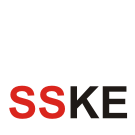From SSKE
(Difference between revisions)
| Line 3: | Line 3: | ||
<span style="font-size:large">Business Process Modeling Course</span> | <span style="font-size:large">Business Process Modeling Course</span> | ||
| − | + | === Objectives, Skills and Learning Outcomes<br/><br/>After the completion of this course unit, students should be able to: === | |
*Describe and explain the context that supports the development of new models and business processes supported by information and communication technologies. | *Describe and explain the context that supports the development of new models and business processes supported by information and communication technologies. | ||
| Line 11: | Line 11: | ||
*Specify information systems to support the implementation and management of business processes from their models. | *Specify information systems to support the implementation and management of business processes from their models. | ||
| − | + | === Program === | |
*I- Concepts and principles; Models and processes: framework and strategy; | *I- Concepts and principles; Models and processes: framework and strategy; | ||
Latest revision as of 23:44, 18 May 2012
FEUP MESG - Services Engineering and Management
Business Process Modeling Course
Objectives, Skills and Learning Outcomes
After the completion of this course unit, students should be able to:
- Describe and explain the context that supports the development of new models and business processes supported by information and communication technologies.
- Explain the benefits of process- oriented organizations management and describe the regulatory frameworks and models of reference.
- Identify and design the processes of an organization from its business model.
- List, explain and apply the main methods, techniques and support tools to the modeling and analysis of processes in an organization.
- Specify information systems to support the implementation and management of business processes from their models.
Program
- I- Concepts and principles; Models and processes: framework and strategy;
- II- Process-oriented management systems; Business Models and Business Processes;
- III- Identification and modelation of processes and services; Representation methods and process documentation; Application examples; as-is” and “to be” models;
- IV- Specification of information systems which support process and services management;
- V- Process management: models, techniques and tools; Alignment, and Performance improvement and management.
Visit the MESG Business Process Modeling Course Site.



